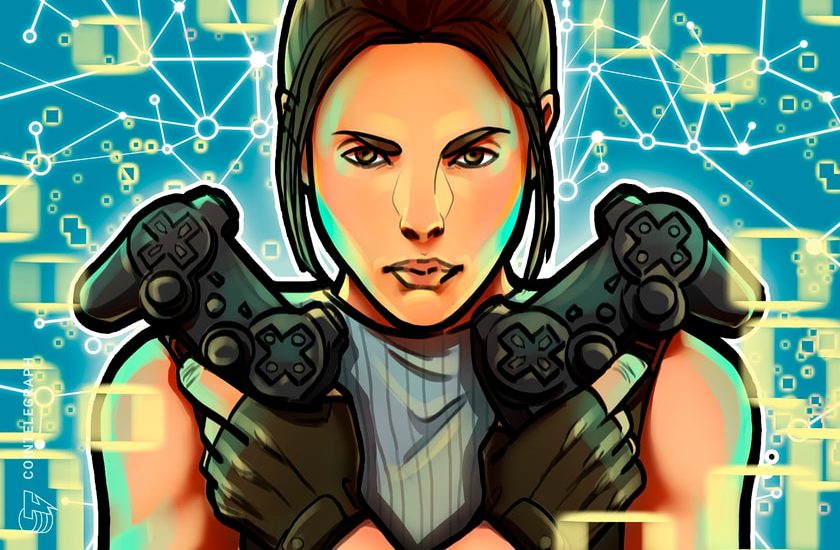- July 6, 2023
- Posted by: admin
- Category: BitCoin, Blockchain, Cryptocurrency, Investments


Animoca Brands co-founder Yat Siu expects a number of its blockchain gaming investments to come to market by the end of 2023.
Blockchain-based games have been a hot topic in the cryptocurrency space over the past two years, accounting for considerable growth and daily activity on a number of protocols despite prolonged bear market conditions.
Market research estimates that Web3 gaming pulled in around $4.5 billion in funding in 2022 as asset managers, investment funds and venture capitalists look to cash in on the burgeoning sector.
In an exclusive interview with Cointelegraph, Animoca Brands co-founder Yat Siu highlighted the firm’s renewed optimism in the blockchain gaming sector and gave an update on its anticipated metaverse fund which grabbed headlines in late 2022.
Metaverse fund awaiting license
Animoca Brands originally earmarked up to $2 billion for a proposed metaverse fund in November 2022 which intends to invest in a variety of mid to late-stage startups building metaverse products and experiences.
The company was forced to scale back on its original investment target as per reports in 2023, reducing the amount to $1 billion in January. Reports citing unnamed sources in March then indicated that the fund would be further reduced to $800 million due to volatility affecting the cryptocurrency space.
Related: NFT games are ‘only scratching the surface’ of what’s possible — Animoca’s Yat Siu
When queried about the current state of the proposed metaverse fund, Siu told Cointelegraph that the firm was still awaiting a license before it can begin to put its money to work.
“That’s the gating factor. But Animoca has made many investments this year and we are over 450 portfolio companies today. That doesn’t come from sitting back and being passive.”
Siu added that Animoca continues to invest in a variety of early stage startups through its venture arm while the majority of investments still come directly from the company’s balance sheet.
Upcoming ‘AAA’ blockchain games on the horizon
While licensing remains a hurdle for Animoca’s Metaverse fund, Siu expects a number of ‘AAA’ titles in which the company has invested in to hit the market by the end of 2023 or early next year.
“That’s one of the reasons we’re so bullish about the segment, hopefully at least one of them will work out.”
Siu added that the quality of titles that Animoca is backing is sound and that blockchain-based games don’t necessarily need to have immediate breakout success to be sustainable, stating, “Most importantly, all these games are built on open protocol systems, like Ethereum or Polygon, meaning they’re on chain, which allows third parties to do some pretty cool stuff.”
Animoca’s co-founder sees a generation of AAA-level blockchain games coming out by the end of 2024, highlighting the shift in focus, capital and talent from mainstream gaming to the sector.
“They’re built by people who know how to make games whereas maybe three years ago, a lot of games came out built by excited blockchain guys, but who knew very little about what it takes to make a game,” he said.
Blockchain games need to do business in the biggest markets
Another factor that has ramped up the development and quality of upcoming blockchain games and those in beta has been the advent of scaling protocols like Polygon and technological advances like zero-knowledge proofs.
Immutable @0xPolygon
We are joining forces in an industry-defining partnership to accelerate the development and adoption of web3 gaming. The future of gaming begins today with the announcement of the Immutable zkEVM, powered by Polygon.https://t.co/7FEyidsydV pic.twitter.com/IkhbWrLIaq
— Immutable (@Immutable) March 20, 2023
Siu highlighted the likes of layer-2 platform Immutable which has made use of zkEVM to reduce costs and improve transaction speeds of NFT generation for blockchain games. The infrastructure alone has made a difference, but Siu added that choosing the right chain also has a massive role to play in the success of a title.
“Because it’s a blockchain game, you need to do business in the biggest market there is and that happens to be Ethereum.”
Siu added that early blockchain games were hamstrung by game design that held onto “Web2 thinking” which was focused on monopolizing network effects of Web2. Siu said bootstrapping to decentralized protocols like Ethereum had an upside and a downside: “The more you open up your network effects. And the more inclusive you become, actually, the more value you end up generating, but there is a loss of control when you do that.”
He also admitted that taking a potential AAA, first-person shooter completely on-chain would be “really hard.” Adopting a hybrid on-chain approach might be better suited as the industry moves towards truly decentralized games.
Magazine: 2023 is a make-or-break year for blockchain gaming: Play-to-own
“Provenance, skins and certain things that don’t requireall the time and data is probably a good starting point,” he said.
Siu said that the established culture of gaming around the world could allow for gaming firms to design and implement blockchain elements as audiences continue to come to grips with Web3 functionality:
“There’s interfaces that we can design that are familiar to the gamer, and essentially introduce the whole experience of crypto and Web3, which comes also with financial literacy onboarding.”
